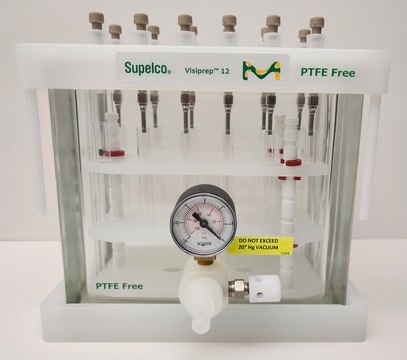71138
Rosetta-gami B(DE3)pLacI Competent Cells - Novagen
Escherichia coli, rod shaped
Select a Size
$1,300.00
In StockDetails
Select a Size
About This Item
$1,300.00
In StockDetails
Recommended Products
Product Name
Rosetta-gami B(DE3)pLacI Competent Cells - Novagen, Rosetta-gami B strains combine the key features of BL21, Origami, and Rosetta to enhance the expression of eukaryotic proteins. Contains the pLacI plasmid producing extra Lac repressor.
biological source
Escherichia coli
Quality Level
manufacturer/tradename
Novagen®
storage condition
OK to freeze
avoid repeated freeze/thaw cycles
growth mode
adherent or suspension
morphology
rod shaped
technique(s)
microbiological culture: suitable
shipped in
dry ice
storage temp.
−70°C
General description
This product contains genetically modified organisms (GMO). Within the EU GMOs are regulated by Directives 2001/18/EC and 2009/41/EC of the European Parliament and of the Council and their national implementation in the member States respectively. This legislation obliges us to request certain information about you and the establishment where the GMOs are being handled. Click here for Enduser Declaration (EUD) Form.
Expression host strains for pETBlue<TMSYMBOL></TMSYMBOL> and pTriEx<TMSYMBOL></TMSYMBOL> vectors are lDE3 lysogens that also carry the compatible pLacI plasmid, encoding the lac repressor. The pLacI plasmid confers chloramphenicol resistance and provides enough lac repressor to inhibit transcription from the T7lac promoter in the absence of inducer. The NovaBlue host strain is recommended for initial cloning with pETBlue and pTriEx vectors due to its superior transformation efficiency and high yields of high-quality plasmid DNA.
Note that these strains are not recommended for use with pET, pACYCDuet<TMSYMBOL></TMSYMBOL>, pCDF, pRSF, pCOLADuet<TMSYMBOL></TMSYMBOL> or pETcoco<TMSYMBOL></TMSYMBOL> vectors.
Rosetta-gami B strains combine the key features of BL21 (and its Tuner<TMSYMBOL></TMSYMBOL> derivative), Origami, and Rosetta to enhance both the expression of eukaryotic proteins and the formation of target protein disulfide bonds in the bacterial cytoplasm. These strains are compatible with ampicillin- or spectinomycin-resistant vectors. In Rosetta-gami B(DE3)pLacI, the rare tRNA genes are present on the same plasmid that carries the lac repressor gene.
DE3 indicates that the host is a lysogen of λDE3, and therefore carries a chromosomal copy of the T7 RNA polymerase gene under control of the lacUV5 promoter. Such strains are suitable for production of protein from target genes cloned in pET vectors by induction with IPTG.
Components
•2 × 0.2 ml5 × 0.2 mlRosetta-gami B(DE3)pLacI Competent Cells
•2 × 2 ml4 × 2 mlSOC Medium
•2 ng2 ngTest Plasmid
Warning
Legal Information
Storage Class
10 - Combustible liquids
wgk_germany
WGK 2
Certificates of Analysis (COA)
Search for Certificates of Analysis (COA) by entering the products Lot/Batch Number. Lot and Batch Numbers can be found on a product’s label following the words ‘Lot’ or ‘Batch’.
Already Own This Product?
Find documentation for the products that you have recently purchased in the Document Library.
Our team of scientists has experience in all areas of research including Life Science, Material Science, Chemical Synthesis, Chromatography, Analytical and many others.
Contact Technical Service

